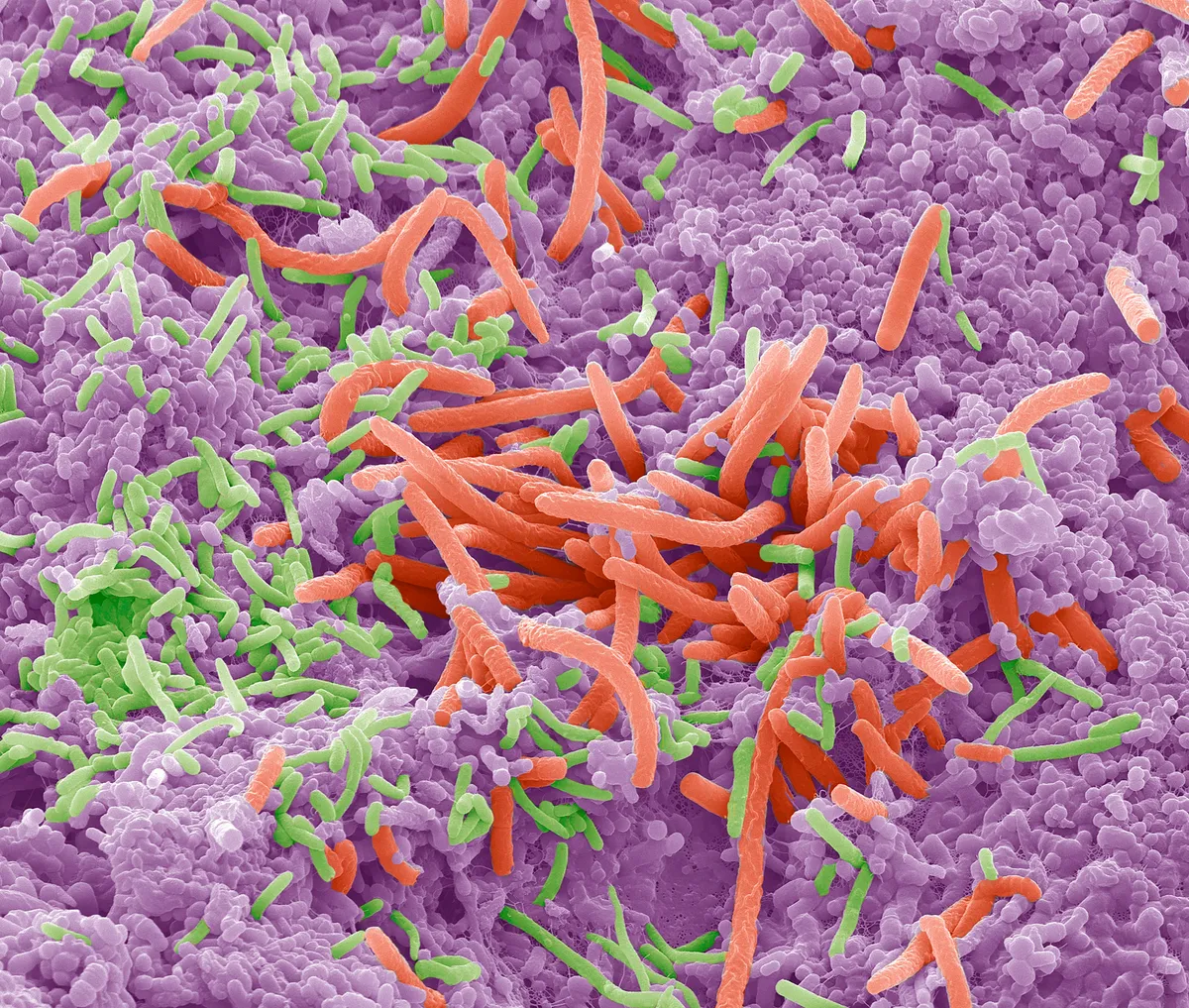- Researchers studying the effects of chlorhexidine mouthwash find it reduces the overall diversity of oral bacteria.
- Use of the mouthwash over seven days increased mouth acidity, potentially damaging teeth.
- Many dentists are now using chlorhexidine as a pre-rinse before dental procedures in light of the coronavirus pandemic.
Commonly-used mouthwash could make saliva significantly more acidic and increase the risk of tooth damage, according to a study.
Researchers at the University of Plymouth examined the effect of chlorhexidine mouthwash on the oral microbiome.
They found it significantly increases the abundance of lactate-producing bacteria that lower the pH of saliva.
The work, published in Scientific Reports, involved participants being given a placebo mouthwash to use for seven days.
Researchers carried out an analysis on the amount and diversity of bacteria in the mouth – the oral microbiome – as well as measuring pH levels.
The saliva buffering capacity, which is the ability to neutralise acids in the mouth, was also recorded, as well as lactate, glucose, nitrate and nitrite concentrations.
Participants then used a chlorhexidine mouthwash for seven days and the same measurements were taken.
Read more about teeth:
- Soft drinks vs your teeth
- Smart material made from squid teeth a potential plastic alternative
- The Smile Stealers: 10 pictures from the history of dentistry to make you squirm
Dr Zoe Brookes, of the University of Plymouth’s Peninsula Dental School, said: “As dental clinicians, we need more information on how mouthwashes alter the balance of oral bacteria, so we can prescribe them correctly.
“This paper is an important first step in achieving this.
“In the face of the recent COVID-19 outbreak, many dentists are now using chlorhexidine as a pre-rinse before dental procedures.
“We urgently need more information on how it works on viruses.”

The research found that using chlorhexidine mouthwash over the seven days led to a greater number of species within the families of Firmicutes and Proteobacteria.
There were fewer Bacteroidetes, TM7 and Fusobacteria.
This change was associated with an increase in acidity, seen in lower salivary pH and buffering capacity.
Overall, chlorhexidine reduced microbial diversity in the mouth.
Researchers say more work is needed to determine if the reduction in diversity increases the risk of oral disease.
One of the primary roles of saliva is to maintain a neutral pH in the mouth, as acidity levels fluctuate from eating and drinking.
If saliva pH is too low, damage can occur to the teeth and mucosa, the tissue surrounding the teeth and on the inside of the mouth.
We believe this is the first study to look at the impact of seven-day use on the whole oral microbiome in human subjects.
Dr Raul Bescos
Dr Raul Bescos, from the University of Plymouth’s Faculty of Health, said: “There is a surprising lack of knowledge and literature behind the use of these products.
“Chlorhexidine mouthwash is widely used but research has been limited to its effect on a small number of bacteria linked to particular oral diseases, and most has been carried out in vitro.
“We believe this is the first study to look at the impact of seven-day use on the whole oral microbiome in human subjects.”
The research confirmed findings from previous studies indicating that chlorhexidine disrupted the ability of oral bacteria to turn nitrate into nitrite.
Lower saliva and blood plasma nitrite concentrations were found after using chlorhexidine mouthwash.
Dr Louise Belfield, also from the Peninsula Dental School, said: “We have significantly under-estimated the complexity of the oral microbiome and the importance of oral bacteria in the past.
“Traditionally the view has been that bacteria are bad and cause diseases. But we now know that the majority of bacteria – whether in the mouth or the gut – are essential for sustaining human health.”
Reader Q&A: Does flossing your teeth really make a difference?
Asked by: Ian Styles, London
For years, dentists have told us to floss as well as brush our teeth. And it seems to make sense: less gunk between our teeth should lead to less decay. Yet surprisingly, there’s little evidence it’s true, as it’s never been put to the test in a large clinical trial.
Some small studies have found that flossing helps combat gum disease, but there’s no compelling evidence that it also stops tooth decay. So does that mean it’s pointless? Not at all. First, gum disease is a major cause of tooth loss. And second, just because researchers haven’t done a proper study, it doesn’t mean flossing can’t also prevent tooth decay: the absence of evidence doesn’t mean there’s no effect.
Read more:
